Margaret Leahy will never forget the first time she set eyes on John McWalter.
“I saw this one guy – red hair, Wrangler jacket, Wrangler jeans, loafer shoes – and I thought, ‘Yeah!’” she laughs. “I fancied him from the first moment I saw him.”
So when she overheard that he was going to see Horslips in Tuam, she was going “by hell or high water”.
“I was only there five minutes when he asked me to dance,” recalls Margaret; a first move that would lead to marriage, four children and a future together on their farm in Garrymore, Co Mayo.
“John was never walking in front of me or behind me; he was always beside me,” she smiles softly. “And I always felt – and I still feel it – that he had his hand in the small of my back. Encouraging me to go forward, but always there if I fell back.”
You might know Margaret for several reasons.
She was the first female chair of the Irish Organic Association (IOFGA) for instance. She has also worked in the community sphere for most of her career, including her current role as social enterprise development officer with Rethink Ireland. And she is a keen gardener, advocate for Irish artisan food and solo adventurer, with a great sense of humour and following on Twitter as @gardenngather.
But she is also somebody who speaks frankly about love and loss, after John died suddenly of an aneurysm in 2010; leaving her widowed at just 49.
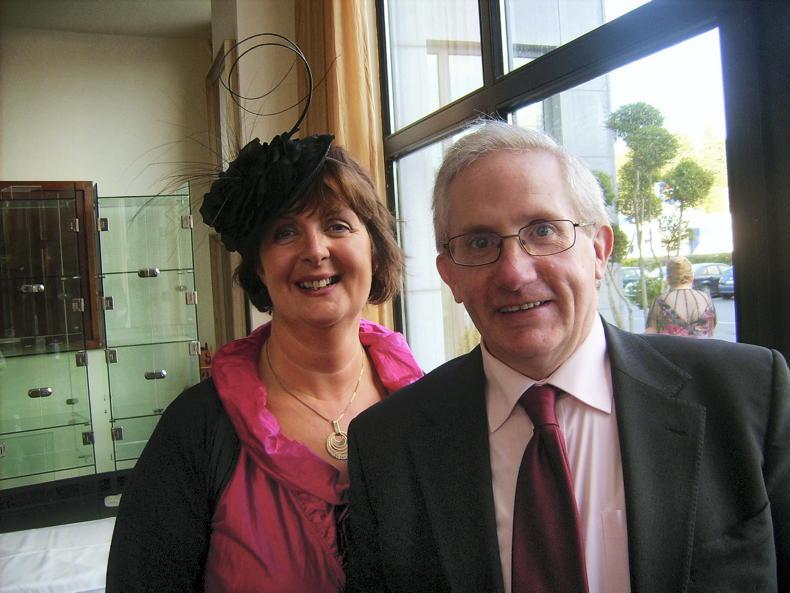
Margaret Leahy with her husband John McWalter, pictured at her niece's wedding three weeks before John died.
Made me smile every day
Margaret was still in school when she met John, who was studying at Mountbellew Agricultural College. After marrying when she was 22, they settled in Mullingar, where she ran a flower shop and had their first two children, James and Ian.
But when sky-high interest rates left them struggling to buy a home, they applied for “Donnelly Visas” to go to the US.
“We said we’d go for a year and make a million; and we stayed for seven and didn’t!” she laughs.
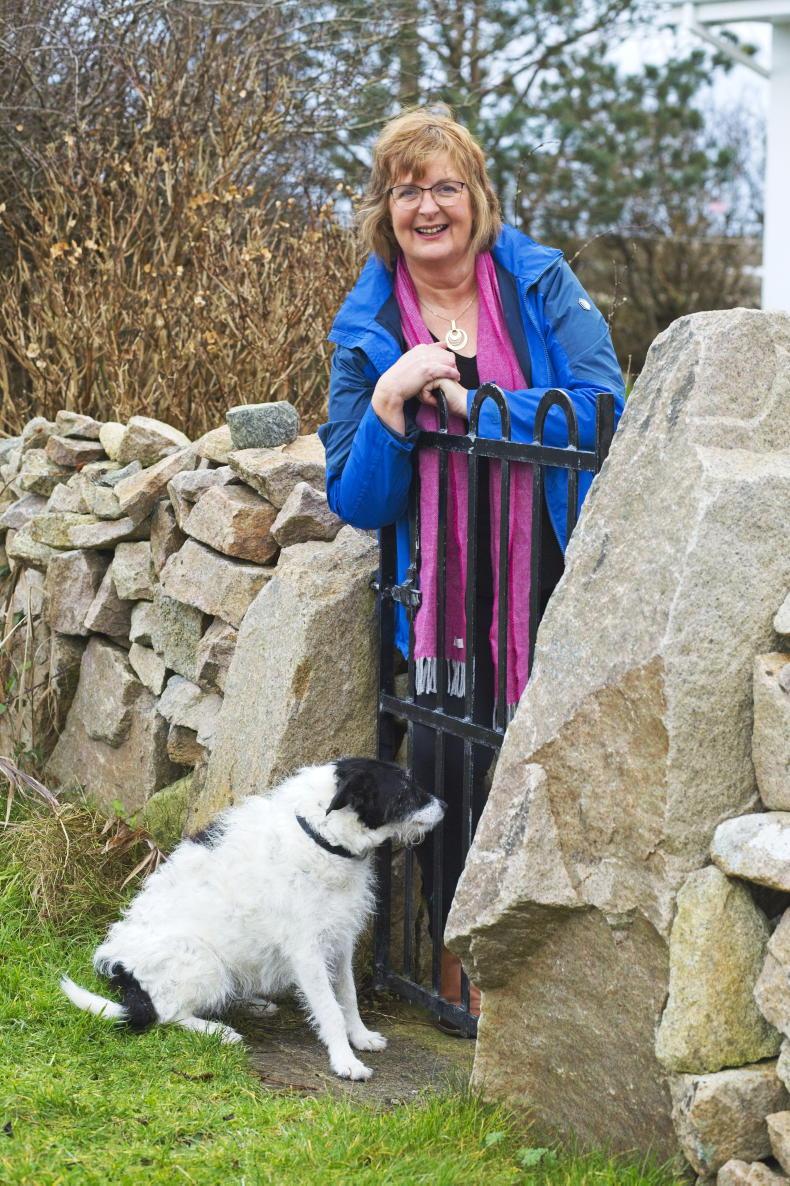
Margaret Leahy, pictured with her dog Willow, at her home in Connemara, Co Galway. \ David Ruffles
The reason for coming home in 1995 was to look after John’s mother (he was an only child) and to take over his family farm, which they converted to organic, specialising in sheep, vegetables and poultry. By then, their family had grown with the arrival of Niamh and Aisling, but Margaret explains how John always supported her other ambitions, like when she raised the prospect of returning to college to do a master’s in rural development.
“The girls were two and four and the boys were 12 and 14,” she recalls. “And his response immediately was, ‘We’ll manage, we’ll move things around.’”
And he made me smile every day
Such a reaction was typical. Margaret describes John as generous “to the point where he would literally give away money that we needed ourselves”. He loved Mayo football, could quote every line of Father Ted and was passionate about community, going on to work as Rural Social Scheme co-ordinator with South-West Mayo Development Company.
“And he made me smile every day,” says Margaret simply.
Devastating loss
In 1996, however, Margaret came close to losing John when he had an aneurysm. Fortunately, he made a recovery following emergency surgery and in November 2010, the couple celebrated his 54th birthday with a trip to Paris.
“On the way back, we had this big discussion about where we were going to go next,” recalls Margaret, earmarking Amsterdam for their next adventure.
After returning home, however, John began to feel unwell.
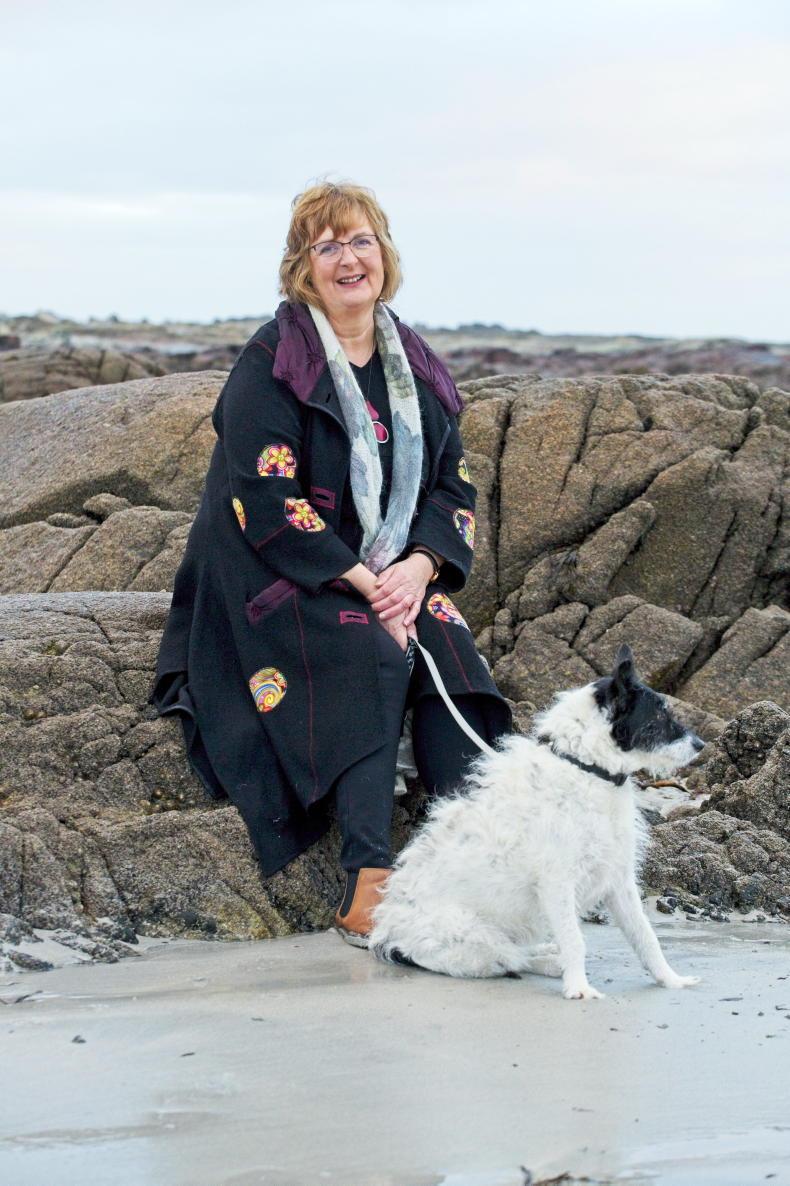
When Margaret Leahy was widowed in 2010 at just 49, she was scared and unsure of what the future would hold. \ David Ruffles
“He said, ‘I must have picked up a bug in Paris,’” says Margaret, who despatched him to the GP. John was referred to hospital for tests, but told it was a virus and discharged. But with no major improvement as the week progressed, it was decided he would return to the GP the next day.
Margaret actually had college in Galway that morning, and wanted to cancel, but John insisted that their son Ian could bring him to the surgery after dropping his sisters to school. That way, if he had to go to hospital again, Margaret could meet him there.
“I wasn’t thrilled about his suggestion, but I could see the logic of it,” she says. “At no stage did I think it was as bad as it was.”
The night before, however, she remembers waking up in the small hours.
“And he said, ‘I’m frozen, I can’t get warm.’ And I said, ‘I’ll get you a hot water bottle’ and he said, ‘No Mags, just cuddle me,’” she recalls, her voice cracking.
“Next morning I got up and I said, ‘How are you?’ and he said, ‘Actually I feel great, not a bother. I don’t even know if I’ll go to Willie [the GP]’ and I said, ‘John, you’ll go to Willie, that’s it!’ So at about eight o’clock, I gave him a kiss and said, ‘I’ll see you later.’”
Margaret had just arrived to the lecture theatre when her phone rang to say that “the doctor was on the way”.
“And I said, ‘On the way where?’” she recalls, quickly hanging up to ring their house phone. Ian answered.

Margaret Leahy, pictured with her dog Willow on the beach in Connemara, Co Galway.\ David Ruffles
“He said, ‘Mam, Dad was on the floor when I came home…’”
Two of Margaret’s classmates arranged for her sister to drive her home, but all the way, she would not even let herself consider the possibility that John would not make it.
“I had a picture of John in my purse and I took it out and I said, ‘As long as I hold this, John is going to be OK,’” she says.
And I don’t remember doing this, but apparently I got into bed beside him and started shouting at the GP to get a hot water bottle to warm him up
Pulling up their lane, she was relieved to see the ambulance, assuming the team must be working on John. When she saw two paramedics standing outside, however, the reality began to slowly dawn.
She raced to their bedroom.
“And I don’t remember doing this, but apparently I got into bed beside him and started shouting at the GP to get a hot water bottle to warm him up,” says Margaret.
“I said, ‘If you get a hot water bottle, he’ll be fine. He just needs to be warm...’”
Incredibly isolating
While some things are still a blur, Margaret will never forget the “physical pain in her chest” when she realised John was dead.
“I actually thought I was having a heart attack,” she explains, adding that there were many mornings in the months that followed that she struggled to face the day.
“I would lie in bed for hours saying, ‘Just get up Margaret. Just sit up in the bed. If you can sit up in the bed, you can get out of the bed.’ And I did this every morning I’d say for a year. And so many mornings I would wake up and stretch out my arm, still thinking there might be somebody there.”
While Margaret was fortunate to have good family and friends, and also connected with a support group called Widow.ie, she found her new life incredibly isolating.
“I became a single parent overnight,” she says of becoming the sole decision maker, for instance. “Even simple things like, ‘Should they go to the Foróige disco Friday night?’ You had no one to bounce that off.”
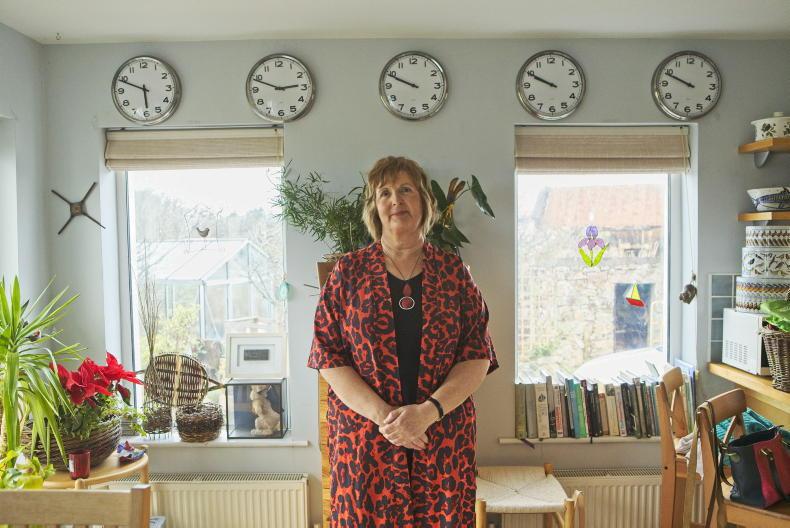
Margaret Leahy, pictured at her home in Connemara, Co Galway. The clocks behind her are set to the different time zones of where her four children now live and work. \ David Ruffles
Looking back now, she wishes she had been more open about asking for help.
“I often say I tried to be mother, father, farmer and worker and I didn’t do any of them right, if that makes sense. I didn’t ask for enough help because I thought if I ask for help on the farm, I was letting John down, or if I asked for more help with the kids, I was letting John down,” says Margaret.
Indeed, she admits “almost a guilt” around making decisions without John.
And I remember that day saying to myself, ‘I will not be in this house this time next year for the sixth anniversary’
“But it started to get to the point where I had to start making decisions,” she says; mainly what she was going to do with the farm once her youngest left home.
“It was his fifth anniversary, and I was lying in bed, in the same room, in the same bed where he died and I said, ‘I’m not doing this anymore. I can’t be in this room anymore. This room is making me sad. This house is making me sad,’” explains Margaret.
“And I remember that day saying to myself, ‘I will not be in this house this time next year for the sixth anniversary’. And that was the biggest decision I had to make because I was selling a farm that was in John’s family for generations back… but I knew I couldn’t live there anymore.”
Next chapter
And while it was a huge decision to move to where she now lives in Connemara, it was “one that was 100% right for me,” says Margaret; though the first thing she did was hang John’s scarf on the back of the door.
“Five years later, the scarf is still there,” she says.
Finding the confidence to travel again was also a big step. Three years after John died, her children gave her a gift of a week-long basket weaving course.
“That was the first time I had gone away to something on my own and I found the fact that it was an activity really helped,” said Margaret, who decided to then book another course in Spain. Though after landing in Barcelona, she admits she “100% wanted to turn back”; until she gave herself a good talking to.
“I said, ‘You’ve got a suitcase, you’re in Barcelona, the sun is shining, cop on to yourself!’” she laughs. “I decided I would go to where the accommodation was and I would spend one night there and see how that went; I stayed the week.”
My attitude is no one’s going to come and knock on my door
Margaret also finds great comfort in her garden as well as in creativity; last year, for instance, she made her first quilt and this year, hopes to sew a dress. But it’s as much about finding social opportunities as learning new skills.
“My attitude is no one’s going to come and knock on my door,” she says; though jokes that her friends sometimes tease her that she is never going to meet a man through her hobbies.
(“‘Oh yeah Margaret, you’re going to meet a man at the crochet club, the quilting group!’”)
And while she is open to dating, she feels there should be more social opportunities in general for people living alone. While Margaret might go to a play or a match by herself, she explains that when you do something on your own, “it ends there”.
“I’ve driven home from matches and dying to have a conversation with somebody, so it’s that kind of company you miss,” she says; which is why she is hoping to set up her own small business this year organising artisan food tours along the west coast for groups of 10-12 solo travellers.
Grief is not linear
Grief is not linear, however, and Margaret still misses John terribly.
“But what makes me saddest is what he’s missing. Like he never saw the girls go to their debs, he’ll never walk them up the aisle, none of my grandchildren will ever have a McWalter grandfather and I think that’s incredibly sad,” she says.
But she sees John “in my four kids, all the time”. And feels him near when she sees a robin in her garden, or goes to support his beloved Mayo.
“When we were up in Croke Park during the summer and we beat Dublin, I was jumping up and down and I started bawling crying and I said, ‘John, you would love to be here,’” she says. “So he’s here and he’s not here.”
This April, Margaret is hoping to finally visit Amsterdam; another big step on her journey, as this was where she and John talked about visiting just days before he died.
But hopefully, she will feel his hand in the small of her back all the way; encouraging her to keep going forward.
For further information about Margaret’s solo-friendly food tours, email Irishartisanfoodtours@gmail.com or follow her on Twitter and Instagram @gardenngather
Margaret Leahy will never forget the first time she set eyes on John McWalter.
“I saw this one guy – red hair, Wrangler jacket, Wrangler jeans, loafer shoes – and I thought, ‘Yeah!’” she laughs. “I fancied him from the first moment I saw him.”
So when she overheard that he was going to see Horslips in Tuam, she was going “by hell or high water”.
“I was only there five minutes when he asked me to dance,” recalls Margaret; a first move that would lead to marriage, four children and a future together on their farm in Garrymore, Co Mayo.
“John was never walking in front of me or behind me; he was always beside me,” she smiles softly. “And I always felt – and I still feel it – that he had his hand in the small of my back. Encouraging me to go forward, but always there if I fell back.”
You might know Margaret for several reasons.
She was the first female chair of the Irish Organic Association (IOFGA) for instance. She has also worked in the community sphere for most of her career, including her current role as social enterprise development officer with Rethink Ireland. And she is a keen gardener, advocate for Irish artisan food and solo adventurer, with a great sense of humour and following on Twitter as @gardenngather.
But she is also somebody who speaks frankly about love and loss, after John died suddenly of an aneurysm in 2010; leaving her widowed at just 49.

Margaret Leahy with her husband John McWalter, pictured at her niece's wedding three weeks before John died.
Made me smile every day
Margaret was still in school when she met John, who was studying at Mountbellew Agricultural College. After marrying when she was 22, they settled in Mullingar, where she ran a flower shop and had their first two children, James and Ian.
But when sky-high interest rates left them struggling to buy a home, they applied for “Donnelly Visas” to go to the US.
“We said we’d go for a year and make a million; and we stayed for seven and didn’t!” she laughs.

Margaret Leahy, pictured with her dog Willow, at her home in Connemara, Co Galway. \ David Ruffles
The reason for coming home in 1995 was to look after John’s mother (he was an only child) and to take over his family farm, which they converted to organic, specialising in sheep, vegetables and poultry. By then, their family had grown with the arrival of Niamh and Aisling, but Margaret explains how John always supported her other ambitions, like when she raised the prospect of returning to college to do a master’s in rural development.
“The girls were two and four and the boys were 12 and 14,” she recalls. “And his response immediately was, ‘We’ll manage, we’ll move things around.’”
And he made me smile every day
Such a reaction was typical. Margaret describes John as generous “to the point where he would literally give away money that we needed ourselves”. He loved Mayo football, could quote every line of Father Ted and was passionate about community, going on to work as Rural Social Scheme co-ordinator with South-West Mayo Development Company.
“And he made me smile every day,” says Margaret simply.
Devastating loss
In 1996, however, Margaret came close to losing John when he had an aneurysm. Fortunately, he made a recovery following emergency surgery and in November 2010, the couple celebrated his 54th birthday with a trip to Paris.
“On the way back, we had this big discussion about where we were going to go next,” recalls Margaret, earmarking Amsterdam for their next adventure.
After returning home, however, John began to feel unwell.

When Margaret Leahy was widowed in 2010 at just 49, she was scared and unsure of what the future would hold. \ David Ruffles
“He said, ‘I must have picked up a bug in Paris,’” says Margaret, who despatched him to the GP. John was referred to hospital for tests, but told it was a virus and discharged. But with no major improvement as the week progressed, it was decided he would return to the GP the next day.
Margaret actually had college in Galway that morning, and wanted to cancel, but John insisted that their son Ian could bring him to the surgery after dropping his sisters to school. That way, if he had to go to hospital again, Margaret could meet him there.
“I wasn’t thrilled about his suggestion, but I could see the logic of it,” she says. “At no stage did I think it was as bad as it was.”
The night before, however, she remembers waking up in the small hours.
“And he said, ‘I’m frozen, I can’t get warm.’ And I said, ‘I’ll get you a hot water bottle’ and he said, ‘No Mags, just cuddle me,’” she recalls, her voice cracking.
“Next morning I got up and I said, ‘How are you?’ and he said, ‘Actually I feel great, not a bother. I don’t even know if I’ll go to Willie [the GP]’ and I said, ‘John, you’ll go to Willie, that’s it!’ So at about eight o’clock, I gave him a kiss and said, ‘I’ll see you later.’”
Margaret had just arrived to the lecture theatre when her phone rang to say that “the doctor was on the way”.
“And I said, ‘On the way where?’” she recalls, quickly hanging up to ring their house phone. Ian answered.

Margaret Leahy, pictured with her dog Willow on the beach in Connemara, Co Galway.\ David Ruffles
“He said, ‘Mam, Dad was on the floor when I came home…’”
Two of Margaret’s classmates arranged for her sister to drive her home, but all the way, she would not even let herself consider the possibility that John would not make it.
“I had a picture of John in my purse and I took it out and I said, ‘As long as I hold this, John is going to be OK,’” she says.
And I don’t remember doing this, but apparently I got into bed beside him and started shouting at the GP to get a hot water bottle to warm him up
Pulling up their lane, she was relieved to see the ambulance, assuming the team must be working on John. When she saw two paramedics standing outside, however, the reality began to slowly dawn.
She raced to their bedroom.
“And I don’t remember doing this, but apparently I got into bed beside him and started shouting at the GP to get a hot water bottle to warm him up,” says Margaret.
“I said, ‘If you get a hot water bottle, he’ll be fine. He just needs to be warm...’”
Incredibly isolating
While some things are still a blur, Margaret will never forget the “physical pain in her chest” when she realised John was dead.
“I actually thought I was having a heart attack,” she explains, adding that there were many mornings in the months that followed that she struggled to face the day.
“I would lie in bed for hours saying, ‘Just get up Margaret. Just sit up in the bed. If you can sit up in the bed, you can get out of the bed.’ And I did this every morning I’d say for a year. And so many mornings I would wake up and stretch out my arm, still thinking there might be somebody there.”
While Margaret was fortunate to have good family and friends, and also connected with a support group called Widow.ie, she found her new life incredibly isolating.
“I became a single parent overnight,” she says of becoming the sole decision maker, for instance. “Even simple things like, ‘Should they go to the Foróige disco Friday night?’ You had no one to bounce that off.”

Margaret Leahy, pictured at her home in Connemara, Co Galway. The clocks behind her are set to the different time zones of where her four children now live and work. \ David Ruffles
Looking back now, she wishes she had been more open about asking for help.
“I often say I tried to be mother, father, farmer and worker and I didn’t do any of them right, if that makes sense. I didn’t ask for enough help because I thought if I ask for help on the farm, I was letting John down, or if I asked for more help with the kids, I was letting John down,” says Margaret.
Indeed, she admits “almost a guilt” around making decisions without John.
And I remember that day saying to myself, ‘I will not be in this house this time next year for the sixth anniversary’
“But it started to get to the point where I had to start making decisions,” she says; mainly what she was going to do with the farm once her youngest left home.
“It was his fifth anniversary, and I was lying in bed, in the same room, in the same bed where he died and I said, ‘I’m not doing this anymore. I can’t be in this room anymore. This room is making me sad. This house is making me sad,’” explains Margaret.
“And I remember that day saying to myself, ‘I will not be in this house this time next year for the sixth anniversary’. And that was the biggest decision I had to make because I was selling a farm that was in John’s family for generations back… but I knew I couldn’t live there anymore.”
Next chapter
And while it was a huge decision to move to where she now lives in Connemara, it was “one that was 100% right for me,” says Margaret; though the first thing she did was hang John’s scarf on the back of the door.
“Five years later, the scarf is still there,” she says.
Finding the confidence to travel again was also a big step. Three years after John died, her children gave her a gift of a week-long basket weaving course.
“That was the first time I had gone away to something on my own and I found the fact that it was an activity really helped,” said Margaret, who decided to then book another course in Spain. Though after landing in Barcelona, she admits she “100% wanted to turn back”; until she gave herself a good talking to.
“I said, ‘You’ve got a suitcase, you’re in Barcelona, the sun is shining, cop on to yourself!’” she laughs. “I decided I would go to where the accommodation was and I would spend one night there and see how that went; I stayed the week.”
My attitude is no one’s going to come and knock on my door
Margaret also finds great comfort in her garden as well as in creativity; last year, for instance, she made her first quilt and this year, hopes to sew a dress. But it’s as much about finding social opportunities as learning new skills.
“My attitude is no one’s going to come and knock on my door,” she says; though jokes that her friends sometimes tease her that she is never going to meet a man through her hobbies.
(“‘Oh yeah Margaret, you’re going to meet a man at the crochet club, the quilting group!’”)
And while she is open to dating, she feels there should be more social opportunities in general for people living alone. While Margaret might go to a play or a match by herself, she explains that when you do something on your own, “it ends there”.
“I’ve driven home from matches and dying to have a conversation with somebody, so it’s that kind of company you miss,” she says; which is why she is hoping to set up her own small business this year organising artisan food tours along the west coast for groups of 10-12 solo travellers.
Grief is not linear
Grief is not linear, however, and Margaret still misses John terribly.
“But what makes me saddest is what he’s missing. Like he never saw the girls go to their debs, he’ll never walk them up the aisle, none of my grandchildren will ever have a McWalter grandfather and I think that’s incredibly sad,” she says.
But she sees John “in my four kids, all the time”. And feels him near when she sees a robin in her garden, or goes to support his beloved Mayo.
“When we were up in Croke Park during the summer and we beat Dublin, I was jumping up and down and I started bawling crying and I said, ‘John, you would love to be here,’” she says. “So he’s here and he’s not here.”
This April, Margaret is hoping to finally visit Amsterdam; another big step on her journey, as this was where she and John talked about visiting just days before he died.
But hopefully, she will feel his hand in the small of her back all the way; encouraging her to keep going forward.
For further information about Margaret’s solo-friendly food tours, email Irishartisanfoodtours@gmail.com or follow her on Twitter and Instagram @gardenngather










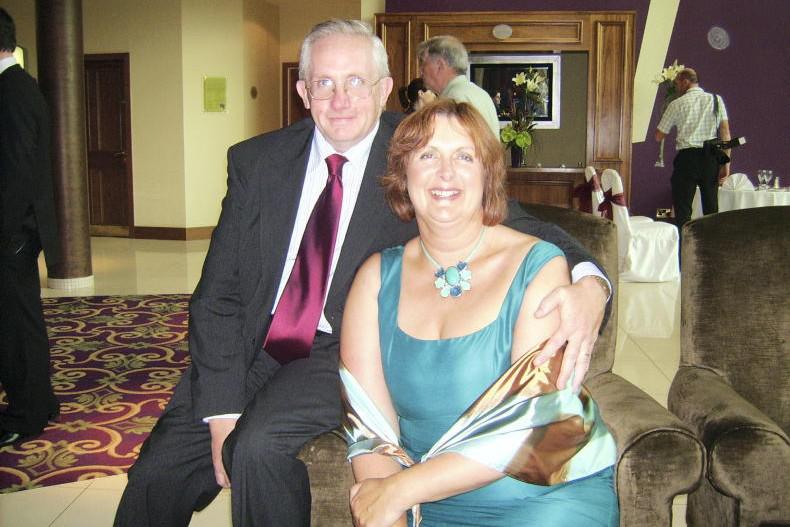

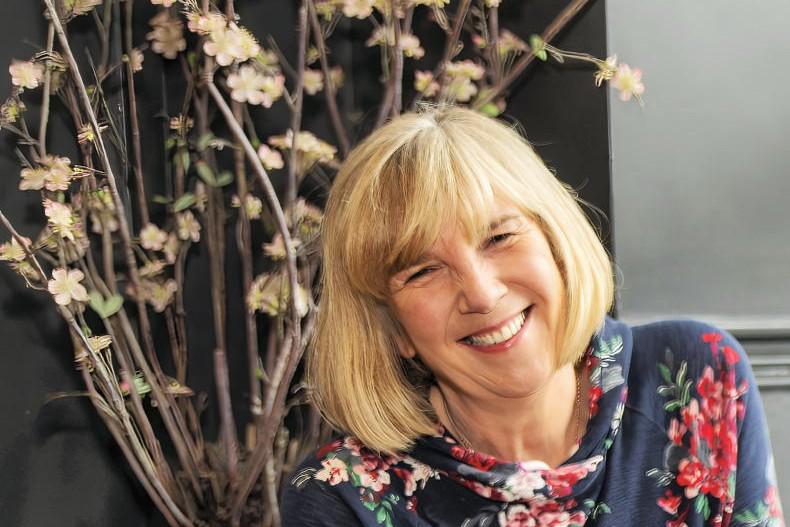
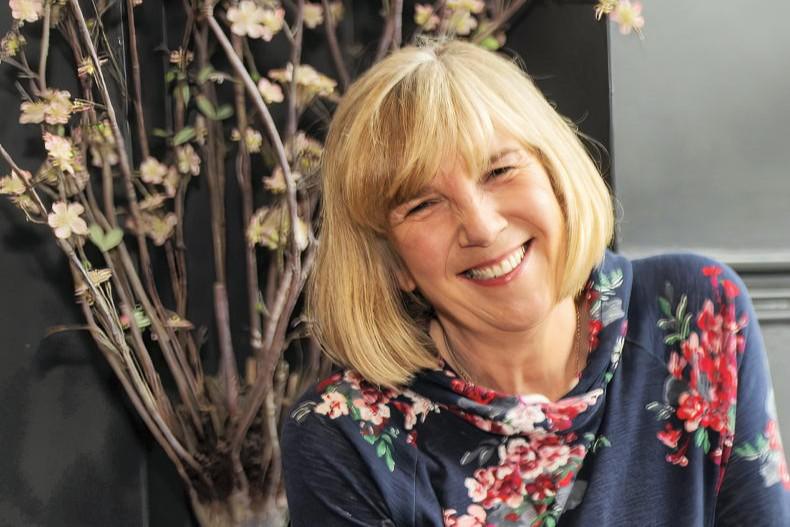
SHARING OPTIONS